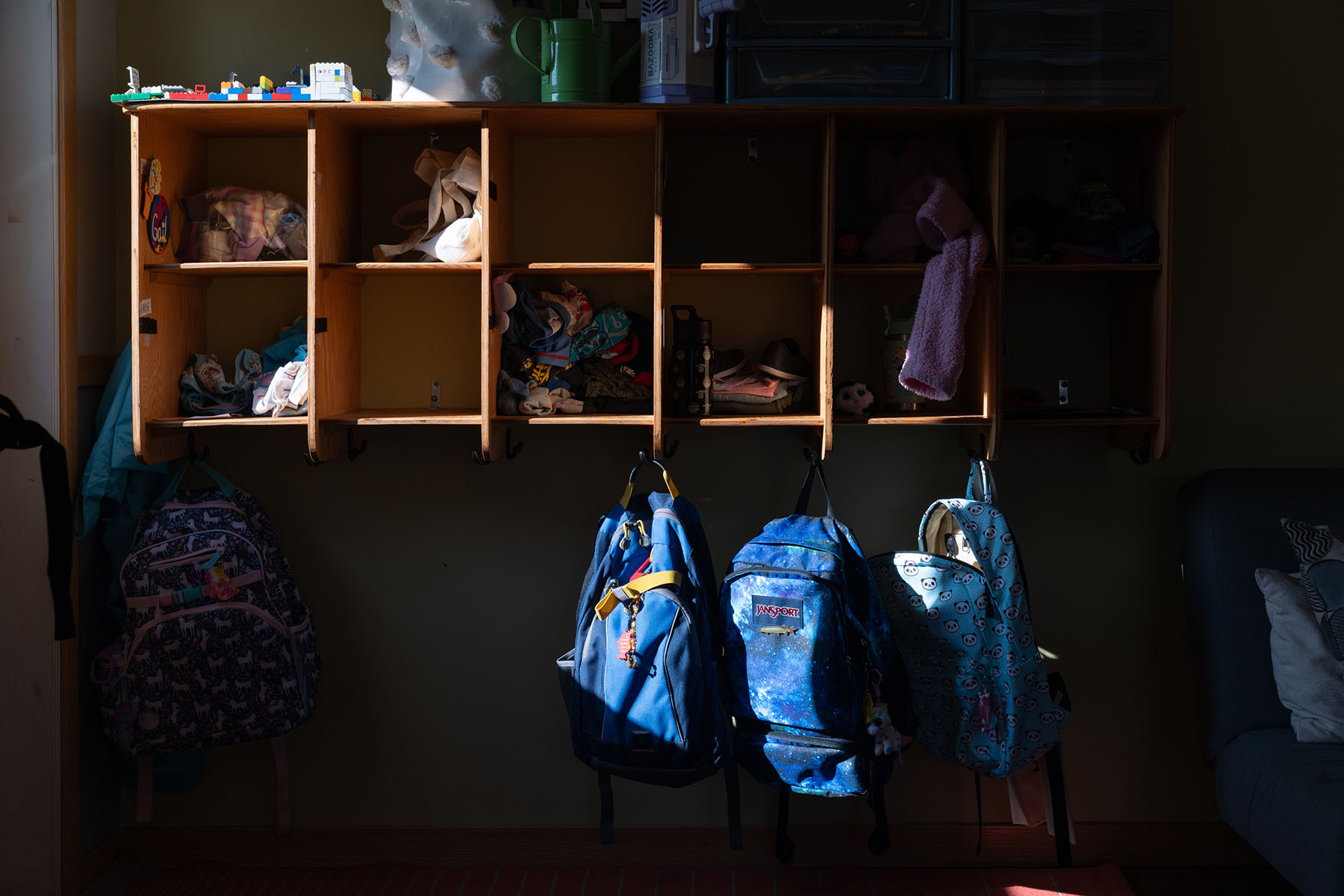Your trusted source for contextualizing the news. Sign up for our daily newsletter.
As efforts to expand the child tax credit and provide paid family leave have stalled at the federal level, states are increasingly incentivizing private employers to step in and fill one of the other most painful gaps for working parents: child care.
According to the National Conference of State Legislatures, 17 states offer child care tax credits to “employers that operate or contract out child care services for their employees.” These states are Arkansas, Colorado, Connecticut, Georgia, Illinois, Iowa, Kansas, Maryland, Mississippi, Montana, New Mexico, New York, Oregon, Rhode Island, South Carolina, Virginia and West Virginia.
Eric Syverson, a senior policy specialist in the National Conference of State Legislatures’ fiscal affairs program, said the conversation about a child tax credit at the federal level is driving a bipartisan consensus around finding ways in the tax code to help parents and families in need of child care services.
“I think states have now realized, ‘Oh, the federal government temporarily and now is considering again another increase in these tax credits — child tax credit, child and dependent care tax credit, the EITC [Earned Income Tax Credit]. We could also benefit from that increase if we enact our own.’ And that’s what we’re seeing a lot of states now considering,” Syverson said.
He added that the biggest beneficiaries of state tax credits are large corporations that can afford child care costs. Even with the credit’s growing popularity, a relatively small percentage of companies take advantage of it. Syverson attributes that to the high costs of establishing a child care facility and a general lack of awareness among larger businesses about the tax credit. According to the Bureau of Labor Statistics, only 12 percent of all workers had access to child care benefits through their employer in 2023.
Jessica Chang is the co-founder and CEO of Upwards, a child care marketplace that connects families to child care providers, assists child care providers with business needs, and helps businesses and government entities create child care benefits programs for their employees. Chang said her company operates among the key stakeholders in child care: employers, government, families and child care providers.
Initially, Upwards may collaborate with employers by matching employees with nearby child care providers, a more feasible and cost-efficient option than building an on-site facility. The company can also use data from employees to help customize child care benefits. For example, if Upwards notices employees are calling off work to care for their children, they may recommend providing backup care credits to allow families to find providers at non-traditional hours.
“By partnering with Upwards, we have been able to help our [employees] find trusted providers who are able to accommodate the varying work schedules found at our properties,” Susan Loveday, the vice president of human resources at Dollywood Parks and Resorts, told The 19th. “Additionally, to help with the cost of child care, we provide a monthly stipend to those [employees] whose children are cared for by an Upwards provider.”
To Chang, child care as an employee benefit could resemble health insurance — or become even more important.
“That’s why you actually need to have participation between both employers and government in order to really normalize it and say, ‘This is not a social issue. This is actually an economic issue. This isn’t a mom issue. This is a family issue,’” Chang said. “We’re hearing from employers, for example, they’re not trying to say, ‘Hey, we’re gonna try this, and if it doesn’t work, we’re backing out.’ They’re actually saying, ‘How do we make this successful so there’s no longer an issue? How do we do this for two and three years because we want to make sure that it’s done correctly?’ And that is a significant shift from, say, just checking the box.”
Federal action on child care and other family policies has been slow to advance. Last month, the Senate voted against a bigger child tax credit. Also, federal law does not guarantee workers paid days off for parental, medical and family caregiving responsibilities.
But there have been efforts at the federal level to encourage companies to aid employees with child care, a move that has support from both Democrats and Republicans.
In 2022, Congress passed the CHIPS and Science Act, legislation that allocated $50 billion to companies expanding semiconductor manufacturing and research and offering child care to their employees.
When President Joe Biden was the presumptive Democratic nominee for president, in a debate with former President Donald Trump, he said, “We should significantly increase the child care tax credit. We should significantly increase the availability of women and men, or single parents, to be able to go back to work. And we should encourage businesses to hold, to have child care facilities,” as ways to deal with the child care crisis.
The Heritage Foundation, the conservative group that crafted Project 2025, a proposed blueprint for former President Donald Trump’s potential second term in office, calls for Congress to encourage on-site employee child care, saying it “puts the least stress on the parent-child bond.”
Some experts argue, however, that employer-sponsored child care is only a temporary solution to the child care crisis — and one that poses equity concerns.
For Elliot Haspel, a senior fellow at the family policy think tank Capita and the author of “Crawling Behind: America’s Child Care Crisis and How to Fix It,” employer-sponsored health insurance and its “uneven results” being mirrored in child care is something people should scrutinize. Haspel writes, “The only real solution to America’s child care needs is a system of choice that is funded by a permanent stream of public dollars,” and employer-based taxes is a way to start collecting those funds.
“We have a lot of precedents now at the state and local level of fair ways to fund more affordable, accessible, high-quality child care,” Haspel said, “In Vermont, they are funding a major child care reform bill via a small payroll tax, 0.44 percent, 75 percent of which is borne by the employer, and business owner after business owners went to the legislature and essentially said, ‘Tax us. This is important, this is worth it.’ That’s the kind of employer activity we need.”
Similarly, he said, Massachusetts, Washington, D.C., and Portland have all levied taxes on high-income households to help pay for child care.
“When we care about something and decide it has enough societal value — whether public schools or roads or parks — we find the money,” Haspel said.
Casey Peeks, the senior director of early childhood policy at the left-leaning Center for American Progress (CAP), believes employers should be more active as child care funding advocates, citing from the Council for Strong America’s report that the child care crisis costs the United States $122 billion every year in lost earnings, productivity, and revenue. She sees child care as both an economic and social issue.
“I describe it as a public good because I am not a parent, but I still benefit from child care. Every day I take the Metro to work, I benefit from the fact that my Metro driver, my bus driver, has their child in a safe, high-quality child care program so that they can go to work, and I can get to work,” Peeks said. “I definitely think there’s a role for businesses to play, and it’s in their best interest that we don’t have a child care crisis. … I think that whatever employers offer should, hopefully, be on top of whatever is provided through public investment.”
Another aspect of the child care crisis is supply. A June 2024 report from the Federal Reserve Bank of Chicago found that, despite the increasing cost of child care, child care workers earn an average of $14.60 per hour. The Chicago Fed attributes decreasing supply to the low pay and high responsibility of the job; child care employment in the fourth quarter of 2023 was 9 percent below pre-pandemic levels.
Anna Lovejoy, director of early childhood policy at CAP, acknowledges the effort being made by states to address the child care crisis, but isn’t convinced incentivizing businesses to provide care helps with the supply issue and may potentially create equity issues.
“When you do tie child care to employment, if someone loses their job or chooses to step away from their job, then they don’t have child care in the interim while they’re looking for work,” Lovejoy said. “And so that causes a disadvantage to families. I think, also, it just creates sort of an equity issue for those who have jobs versus don’t have jobs, have child care versus don’t have childcare.”





